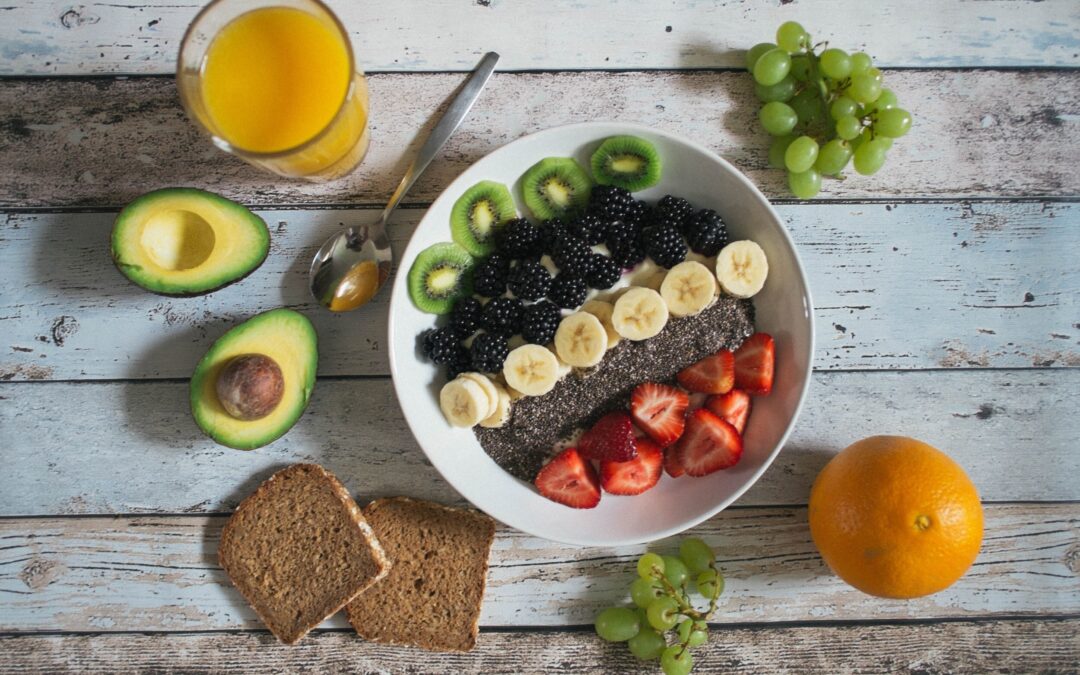If you are giving Veganuary a go this January – whether for weight loss, ethical reasons, to help your teenage children who are keen to try it out or simply to switch things up a bit and bring some inspiration to your meals – read on to find out how to do so safely and without compromising your health.
Eating a 100% vegan diet means that you will need to exclude any foods that are wholly or partially derived from animals – including meat, fish, dairy products, eggs and honey. But what else do you need to be mindful of?
The key nutrients that are more difficult (but not impossible!) to assimilate from a vegan approach to eating are the minerals selenium, zinc, iron, calcium and iodine as well as the Omega-3 chain essential fatty acids (usually found in oily fish). Being mindful of eating the following foods will help maximise your chances of incorporating these nutrients into your meals:
-
Selenium: essential for many of our body’s chemical reactions and our metabolism. Just 1-2 brazil nuts a day may be sufficient to maintain your body’s selenium levels. Sunflower seeds and wholegrains are also good sources, although for all plant sources the actual mineral content will depend on the soil levels of Selenium where the plant was grown.
-
Zinc: a key nutrient for our immune system, our nails and skin and fertility (if you are looking to conceive this year). Sources include tempeh, miso, nuts (cashews, almonds, walnuts), pumpkin seeds, peas, beans, chickpeas, spinach, avocado, wholegrains and dark chocolate. Sprouting seeds e.g. peas, beans and lentils or fermenting your vegetables (think Sauerkraut or Kimchi) may increase your likelihood of absorbing the zinc.
-
Iron: important for creating our red blood cells that transport oxygen around our bodies, giving us energy to enjoy life. Good sources include pulses, beans (kidney, black-eyed, chickpeas), lentils, dried fruits and dark green leafy veg: think spinach, kale or savoy cabbage all readily available in shops now. As plant-based sources of iron are more difficult to absorb than animal sources, try pairing your iron rich vegetables with some vitamin C to improve absorption: a squeeze of lemon works well.
-
Calcium: key for our bones and teeth. Green leafy veg, watercress, nuts (almonds, brazils, walnuts), sesame seeds, tofu, whole grains and apricots all contain calcium. But make sure you are getting sufficient vitamin D to ensure maximum absorption (see below).
-
Iodine: particularly important as women age when our thyroid glands that produce hormones to regulate our metabolism (think weight management) can start to become less efficient. The thyroid gland needs iodine to create its hormones: too little dietary iodine may affect this, potentially slowing down your metabolism, but too much can also be a cause for concern. Sea vegetables (e.g. seaweed, kelp, kombu, wakame) are good sources of iodine, calcium and iron – add a small sprinkling to salads, stir fries, soups or stews, but be sure to use certified organic sea vegetables to avoid potential contamination from heavy metals.
-
Omega-3 fats: key players for our energy, hormone production, brain health and controlling inflammation. Good sources include chia, flax, hemp, pumpkin or sunflower seeds, walnuts, almonds or cashew nuts, avocados, algae and seaweed.
When it comes to vitamin B12 (essential for our brain health, energy and nervous system), this is probably the hardest nutrient to assimilate from a vegan diet. Additionally, our bodies can only store vitamin B12 for 2 to 4 years, so if you have been vegan for a while then testing your body’s vitamin levels and/or supplementing could be a good idea. Some nutritional yeast products are fortified with vitamin B12, which can be stirred into soups and sauces or blended into dips, mashed potato or sprinkled over pasta to increase your dietary vitamin B12 levels. However, levels of the vitamin will vary from product to product, so read the label and ensure you choose a good quality product.
Finally, how could we forget Vitamin D – particularly this winter?! If you are in the UK or the northern hemisphere. with short days and little sunlight, you are unlikely to be able to expose enough of your skin to the sun for long enough on winter days to make sufficient vitamin D (simply getting sunlight on your face is not enough). Mushrooms are the best plant-based source of vitamin D. You may, however, still need to supplement. I recommend testing your vitamin D levels before you start so that you can accurately increase your existing levels – too much vitamin D isn’t good for you either! You can ask your GP to do this or contact me to order a home testing kit (costing £28) and supplement review.
Remember, you might also be deficient in any of the nutrients I’ve referred to above (and others) because you are not digesting or absorbing your food sufficiently. That’s nothing to do with the food you are eating, more the way you eat, the effectiveness of your digestive tract and your body’s capacity to absorb nutrients from your food. If you want to know more about this or check your nutrient status, contact me for further information.
For parents of teenagers, it’s important to ensure that your teenagers get the nutrients they need from a vegan diet to support the shift in hormones they are experiencing – check out the Vegan Society’s teen hub here or contact me to find out more.
